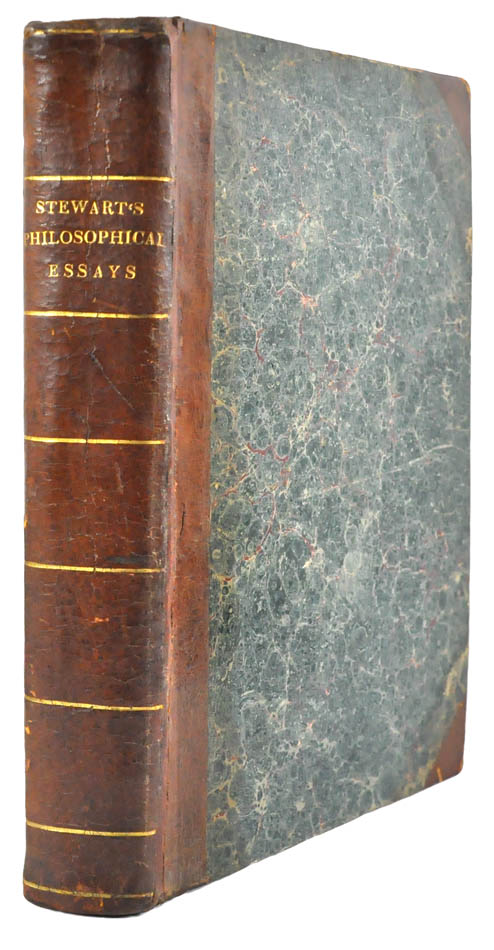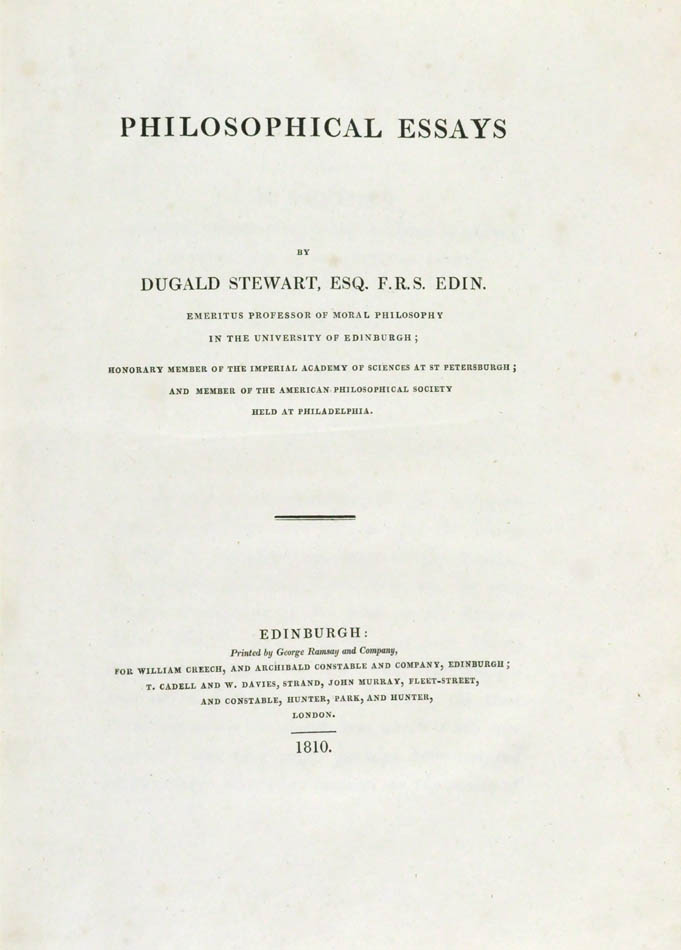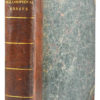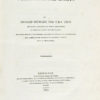“”In his work on the history of philosophy, Stewart proved to be both a late product, and an early theorist, of the Scottish Enlightenment. He identified two characteristics which have subsequently concerned its study: first, the issue of the Scottish character of the school. He was a strong patriot in matters of philosophical origins—along with matters of chronological duration—and gave the Irishman Francis Hutcheson a pivotal role, though he claimed Hutcheson as a fellow Scot. Second was the remit and scope of their concerns—’conjectural history’, which he first defined in his essay on Smith; the ‘science of man’, which he centred on Robertson; and the defence against Humean scepticism, for which he celebrated Thomas Reid. He also highlighted the sociology of knowledge, giving pre-eminence to the universities and emphasizing the role of print culture in the development of the school’s ideas.
In respect of political economy, Stewart was an inspiration to the Edinburgh Review. It took from Stewart both his advocacy of free trade and his conception of political economy as a broad discipline concerned with investigating human behaviour and motivation. Paradoxically, given the Review’s whiggish political attitude, Stewart also influenced a tory school of political economists at Oxford. This group of high-churchmen, which included Edward Copleston, John William Ward, and Richard Whatley, was impressed by Stewart’s Philosophical Essays. In particular they drew on his arguments against philosophical materialism and the French school of idéologues.”” (ODNB).
Description
First edition. 4to., xii, lxxvi, 590pp., errata leaf, contemporary half calf gilt, marbled boards, joints repaired, a very good copy.




